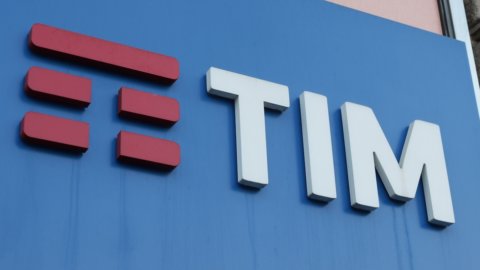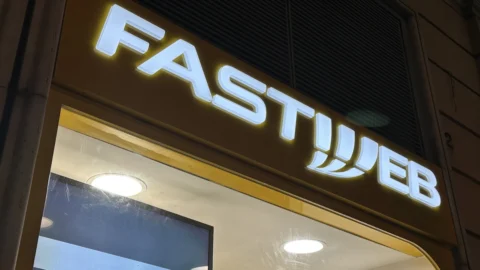The possibility of introducing is removed the so-called “Telco Tax” in Europe, a tax that large hi-tech groups would have to pay to telecommunications companies to finance development of 5G and broadband in the Old Continent. After the opposition of the European ministers of the sector, the sharp No of the US administration also arrives, according to which to impose a direct payment by the Over The Top to Internet service providers (ISPs) would distort competition and would undermine net neutrality.
The Telco proposal
The tech groups that account for more than 5% of the average peak internet traffic of a telecommunications provider should finance the rollout of 5G and broadband in Europe. This is what is expected from a draft of proposal presented by the major European Telcos. The initiative comes as part of feedback provided to the European Commission, which launched a consultation on the issue in February.
Indeed, in September of last year, Breton announced the launch of a public consultation on the Internet world with the aim of helping the EU Commission to decide whether the web giants should actually be “taxed” to participate in the costs of telecommunications networks. "We have to ask ourselves whether our regulation on networks, designed at the time of the opening up of copper networks to competition, is still suitable, now that there is already talk of a metaverse with massive data flows", said the commissioner, speaking of " Fair Share” or the possibility that the big Hi Techs do their part in financing the European infrastructure for broadband.
As explained by Reuters, the document presented to the EU Executive would have been written by the GSMA, an association which includes, among others, Deutsche Telekom, Orange, Telefonica, Telecom Italia and Vodafone.
Simply put, companies are demanding that Big Techs bear part of the network costs on the basis that their data and content make up a large part of the traffic generated on the networks.
The No of the EU telecommunications ministers
Always Reuters, which cites anonymous sources, explains that most EU countries already have expressed its opposition against the "telco tax". At a meeting with EU industry chief Thierry Breton in Luxembourg on Thursday, EU telecoms ministersthe 18 countries have rejected the network fee proposal for technology companies. According to them, in fact, to date there would be no analysis on the impacts of the measure which, among other things, could involve a risk for final consumers, given that Big Techs could transfer the higher costs to consumers, increasing prices .
The ministers also warned Brussels about the potential violation of the “net neutrality” rules of the EU, which require all users to be treated equally, as well as possible barriers to innovation and lower quality of products.
According to rumors reported by the press agency, the ministers of Austria, Belgium, the Czech Republic, Denmark, Finland, Germany, Ireland, Lithuania, Malta and the Netherlands expressed their opposition to the tax.
France, Greece, Hungary, Italy, Spain and Cyprus would instead be in favor of the idea, while Poland, Portugal and Romania would be neutral.
A report from Brussels should arrive by the end of June summarizing the feedback provided to the Commission by Big Tech, telecoms providers and others, which will help decide its next steps.
Telco Tax: Biden Administration Says No
After the No of Google, Apple, Meta, Netflix, Amazon and Microsoft, too the Biden administration strongly opposed it to the idea of imposing a tax on Big Tech, urging the European Union to reject the TLCs' plan to make Big Tech companies pay for expansions and upgrades to the network of Internet service providers.
In comments submitted to the European Commission last week, the National Telecommunications and Information Administration (Ntia) of the US Department of Commerce said that imposing direct payments to Big Tech towards the so-called ISPs (Internet Service Providers, ed.), “would distort competition” and would undermine net neutrality.
“The obligation of direct payments to telecom operators in the EU in the absence of guarantees on expenditure could strengthen the dominant market position of the major operators", says the Ntia which urged the EU to "promote access to affordable broadband prices, protect user access to online content and avoid discriminatory measures that distort competition. Not only that, according to the US body, the proposal could create a new “bottleneck” that could be used by telecommunications operators to “increase control over their customers; increase costs for consumers and small businesses; and create distortions in the Internet ecosystem”.
“We urge caution in case the EU considers any new funding mechanisms that could disrupt the current internet ecosystem, which has successfully adapted to changing technological and market conditions over time,” the NTIA said. “Internet traffic is global if many countries took this path, it would probably be unsustainable”.
Berec is also against it
Previously the Telco proposal had been also criticized by Berec, the body that brings together the European regulators of electronic communications, according to which the proposal presents risks for the Internet ecosystem and would not be justified by the real weight that the large digital platforms have on the costs of the operators.
“The introduction of a mandatory financial contribution by the large CAPs (Content and application providers: in practice, Netflix, Google, Meta, Amazon and so on) to the ISPs can distort competition between market players“, the group said. “Smaller ISPs are likely to be at a competitive disadvantage compared to large ISPs, particularly due to fewer end users and their lower bargaining power. Large CAPs typically provide commercial content delivery networks and may cloud services pass the higher costs onto their customers, which would not concern, for example, only the smallest Taps, but also commercial users, in particular SMEs.”
BEREC also stated that there is a danger that customers of content providers, including small and medium-sized enterprises, are “negatively affected when higher costs are passed on through higher rates for content subscriptions or quality of service is reduced.”





